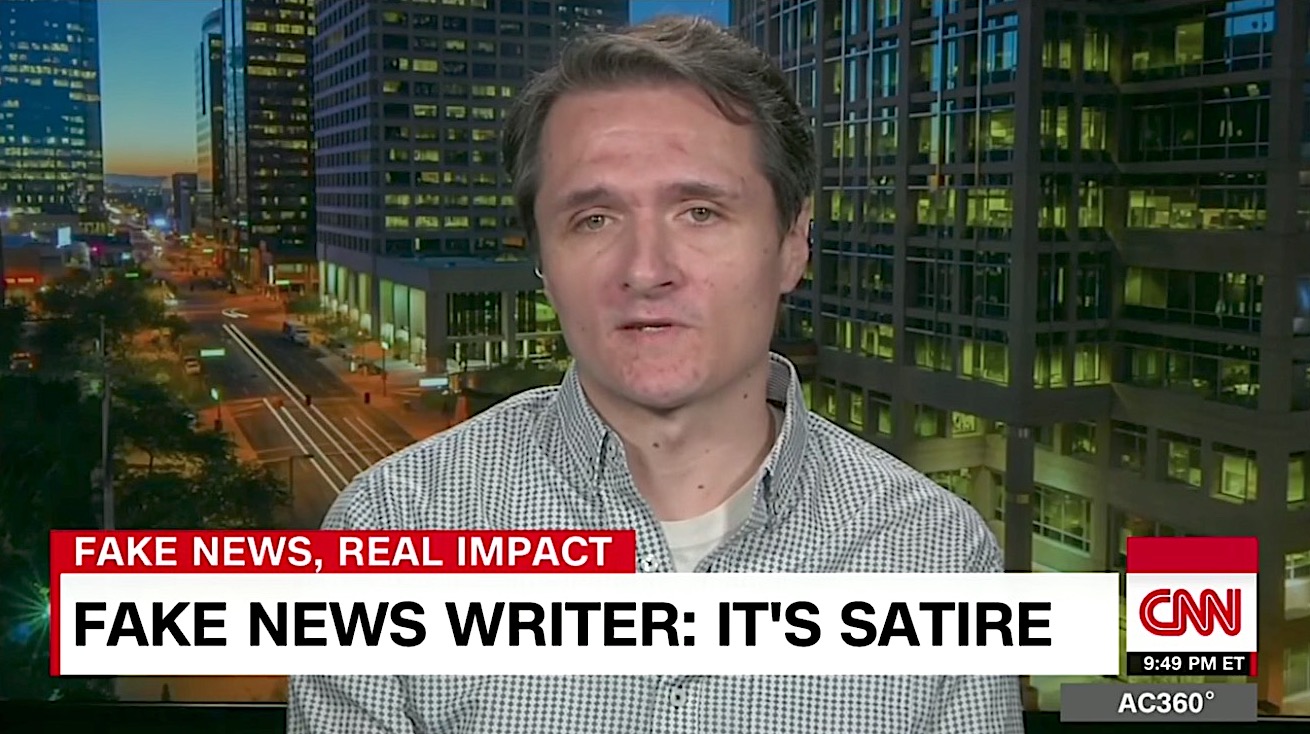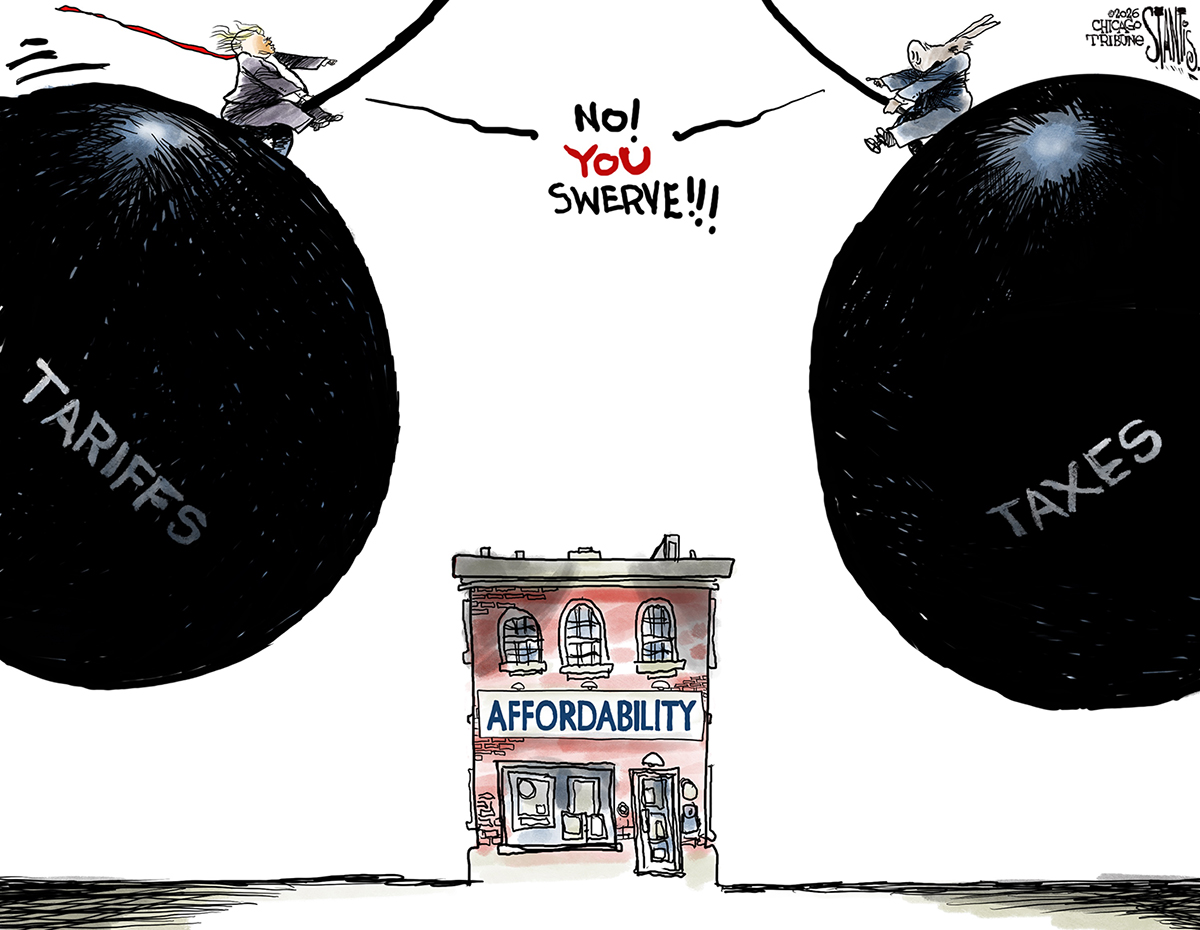Fake-news impresario who credibly claimed influence in 2016 election found dead at home


Paul Horner, a self-proclaimed satirist who said that his fake news articles probably unwittingly helped elect President Trump, was found dead at his mother's house outside Phoenix on Sept. 18, the Maricopa County Sheriff's department said Tuesday. Horner, 38, was discovered dead in his bed, sheriff's department spokesman Mark Casey said, but an autopsy found no signs of foul play and "evidence at the scene suggested this could be an accidental overdose." The case will remain open until toxicology reports come back.
Horner's brother, J.J. Horner, told The Associated Press that his brother was always interested in the news, drawing editorial cartoons while still in grade school in Minnesota. "I think he just wanted people to just think for themselves and be credible for their actions," he said. "Read more; get more involved instead of just blindly sharing things." In a November interview with The Washington Post, Paul Horner made clear that he wasn't a Trump supporter and he'd hoped his fake articles would make Trump fans "look like idiots" when they discovered they were taken in. But "they never fact-check anything!" he said. "Now he's in the White House. Looking back, instead of hurting the campaign, I think I helped it."
PolitiFact remembered Horner with a list of some of his fake news stories they debunked, including one cited by Trump and shared by campaign chairman Corey Lewandowski about protesters being paid $3,500 to disrupt Trump rallies, posted to the real-sounding site abcnews.com.co. He earned thousands of dollars a month from his articles. In December 2016, Horner tried to explain why he wrote what he called "satire" to CNN's Anderson Cooper. You can watch that below. Peter Weber
The Week
Escape your echo chamber. Get the facts behind the news, plus analysis from multiple perspectives.

Sign up for The Week's Free Newsletters
From our morning news briefing to a weekly Good News Newsletter, get the best of The Week delivered directly to your inbox.
From our morning news briefing to a weekly Good News Newsletter, get the best of The Week delivered directly to your inbox.
A free daily email with the biggest news stories of the day – and the best features from TheWeek.com
Peter has worked as a news and culture writer and editor at The Week since the site's launch in 2008. He covers politics, world affairs, religion and cultural currents. His journalism career began as a copy editor at a financial newswire and has included editorial positions at The New York Times Magazine, Facts on File, and Oregon State University.
-
 Political cartoons for January 18
Political cartoons for January 18Cartoons Sunday’s political cartoons include cost of living, endless supply of greed, and more
-
 Exploring ancient forests on three continents
Exploring ancient forests on three continentsThe Week Recommends Reconnecting with historic nature across the world
-
 How oil tankers have been weaponised
How oil tankers have been weaponisedThe Explainer The seizure of a Russian tanker in the Atlantic last week has drawn attention to the country’s clandestine shipping network
-
 ‘One Battle After Another’ wins Critics Choice honors
‘One Battle After Another’ wins Critics Choice honorsSpeed Read Paul Thomas Anderson’s latest film, which stars Leonardo DiCaprio, won best picture at the 31st Critics Choice Awards
-
 Son arrested over killing of Rob and Michele Reiner
Son arrested over killing of Rob and Michele ReinerSpeed Read Nick, the 32-year-old son of Hollywood director Rob Reiner, has been booked for the murder of his parents
-
 Rob Reiner, wife dead in ‘apparent homicide’
Rob Reiner, wife dead in ‘apparent homicide’speed read The Reiners, found in their Los Angeles home, ‘had injuries consistent with being stabbed’
-
 Hungary’s Krasznahorkai wins Nobel for literature
Hungary’s Krasznahorkai wins Nobel for literatureSpeed Read László Krasznahorkai is the author of acclaimed novels like ‘The Melancholy of Resistance’ and ‘Satantango’
-
 Primatologist Jane Goodall dies at 91
Primatologist Jane Goodall dies at 91Speed Read She rose to fame following her groundbreaking field research with chimpanzees
-
 Florida erases rainbow crosswalk at Pulse nightclub
Florida erases rainbow crosswalk at Pulse nightclubSpeed Read The colorful crosswalk was outside the former LGBTQ nightclub where 49 people were killed in a 2016 shooting
-
 Trump says Smithsonian too focused on slavery's ills
Trump says Smithsonian too focused on slavery's illsSpeed Read The president would prefer the museum to highlight 'success,' 'brightness' and 'the future'
-
 Trump to host Kennedy Honors for Kiss, Stallone
Trump to host Kennedy Honors for Kiss, StalloneSpeed Read Actor Sylvester Stallone and the glam-rock band Kiss were among those named as this year's inductees
